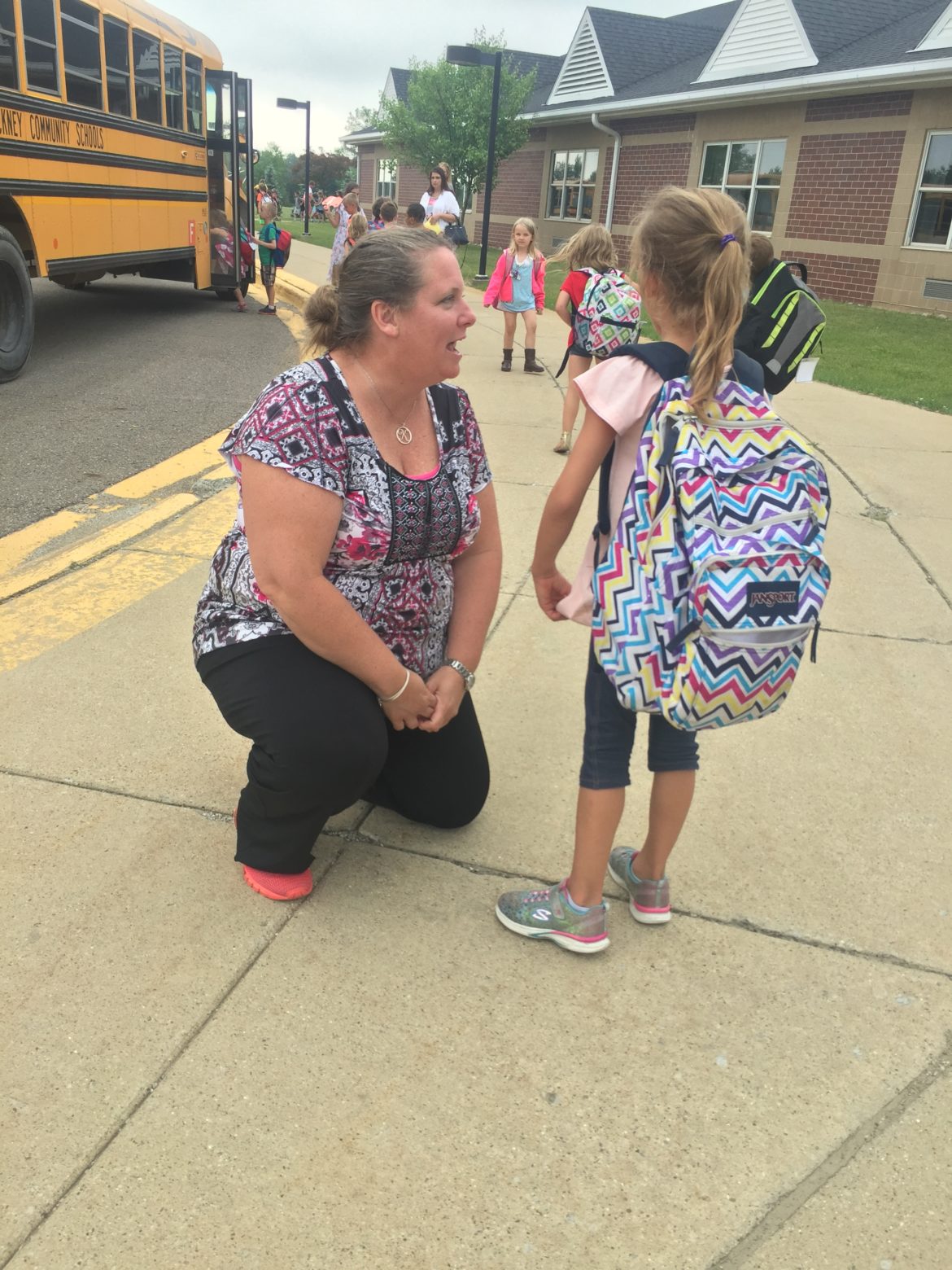The end of the school year brings a lot of emotions for any age student. For students, there are feelings of excitement because summer is just around the corner, and feelings of sadness because they are going to miss their favorite teacher. Teachers also have a lot of the same emotions; excitement because summer is just around the corner and feelings of sadness because they’re going to miss their favorite students.
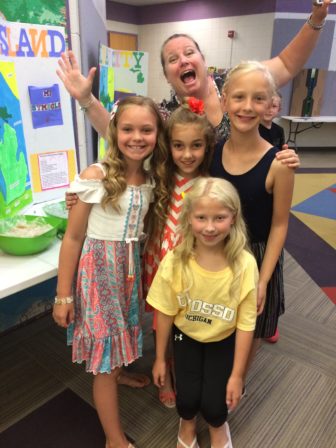
Golin said, “for any teacher, each day is different from the one before. Students bring so much variety to the classroom with their concerns, health issues, excitements, sadness, anticipations, questions, drama, etcetera. Teachers are so much more than just teachers. We have a whole slew of different hats or titles.”
Mrs. Golin, a third-grade teacher at Farley Hill Elementary School, said she is one of those teachers. This picture story shows a glimpse of what it’s like as an elementary school teacher on the final days of the year.
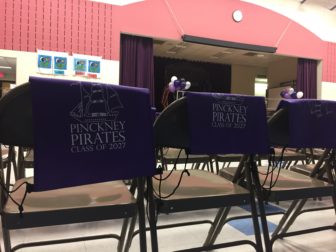
Tuesday was the third-grade graduation at Farley Hill Elementary. The class of 2027 walked across the stage as they transition to a new school next year.
Golin became a teacher with hopes of making a difference in a child’s life and instilling a love of learning. Her active and inquiry-based classroom involves using humorous words or phrases that usually only a third-grader would find funny, theatrically reading the final chapters in a book as if she were acting out a Broadway play and making sure she gives lots and lots of hugs.
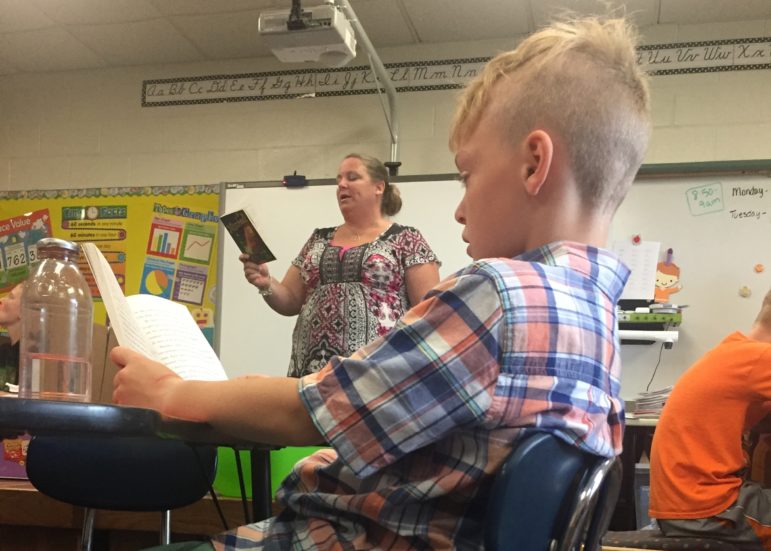
The last week of school is also filled with exciting events, and on this day, Golin’s classroom had a packed schedule. From third-grade graduation rehearsal, Michigan City presentations, talking to parents, and to the graduation itself, the life of an elementary school teacher is busy.
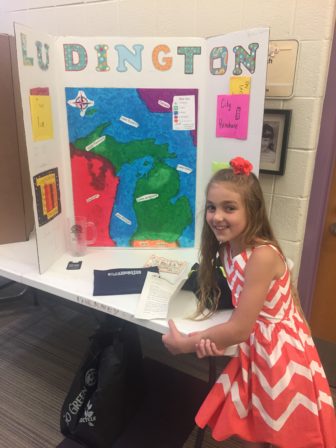
Aaliyah Royston presented her board on the city of Ludington, Michigan where her family often vacations.
At the end of the school year, learning doesn’t stop. All of the third-graders at Farley Hill Elementary presented their Michigan City projects. Golin said that the presentations are an important learning experience because it teaches the students how to research a topic of study and present it.
“Presenting their knowledge is priceless, as it is motivating and rewarding for students to teach others of their newly learned information,”Golin said.
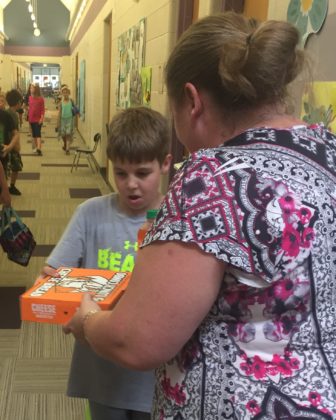
One of the many teaching styles Golin has includes rewarding students who work hard. For example, this student reached his multiplication goal, so Golin bought him lunch.
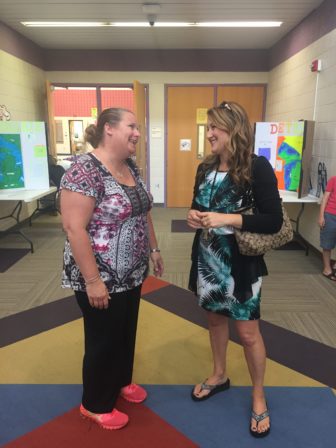
NeCole Royston, a parent to one of Golin’s students said, “Mrs. Golin’s teaching style with the layered curriculum was great because I felt Aaliyah could learn at a pace that she needed. She was able to apply what she learned and think about it more critically throughout the layers. I also like the real world experiences. Mrs. Golin is real with her students. She doesn’t sugar coat things for the kids, and I personally love that.”
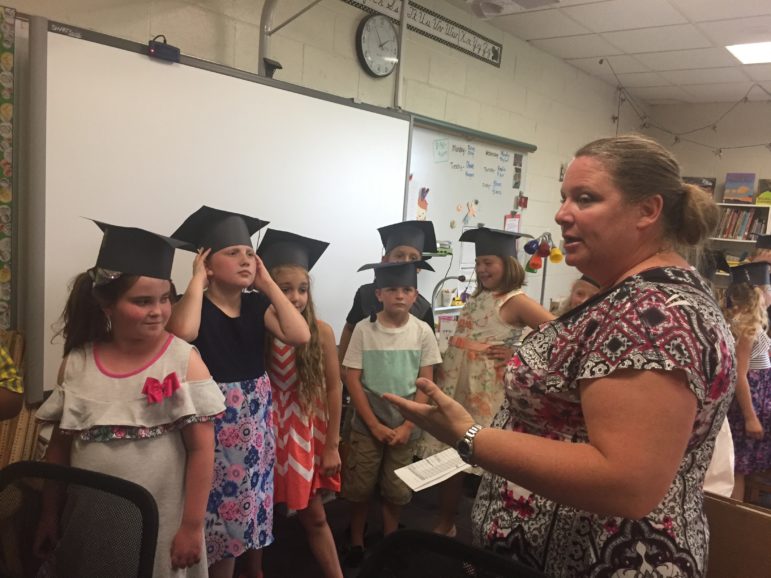
Yvonne Taylor, the principal at Farley Hill Elementary, said the third-grade graduation is an important celebration.
“It’s an important transition between what they’ve learned and accomplished and what’s now yet to come,” Taylor said.
The graduation also symbolizes the transition of the student into a higher learning environment; these third graders will be moving into the upper elementary school building next year. The ceremony also brings closure to the students and teachers.
“You can’t just put them on the bus and say see ya,” Taylor said. “It’s that symbolic and real need on part of the children, parents and staff to bring closure to the last four years together.”
The last week for a teacher also deals with some not-so-exciting business, like uncovering a desk piled high with paperwork and projects, report card deadlines and playground tears.
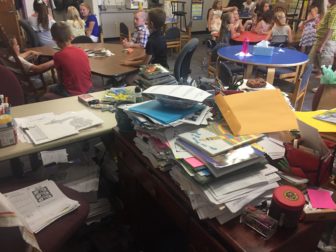
Golin’s desk was piled with paper work and projects ready to be graded.
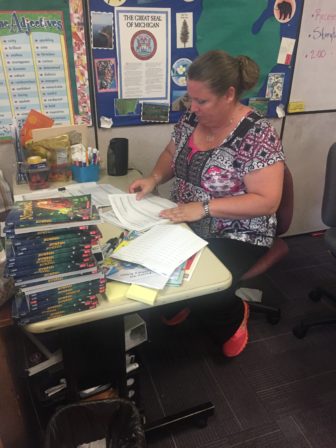
During Golin’s break she sat down to finish report cards.

Golin soothed playground tears.
All that doesn’t stop Golin from doing what she’s passionate about. She explained that her job doesn’t stop when she leaves the classroom.
“We do not work 9 a.m. to 4 p.m., but from sun up to sun down,” Golin said. “We plan, make phone calls to parents, correct papers, design lessons, enter grades, take classes and analyze data daily. We take college courses and training to keep our skills sharp and continually volunteer for committees and fill coaching opportunities when we have that skill.”
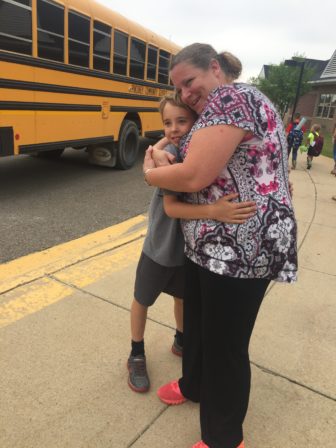
Golin gave lots of hugs to students before they got on the bus to home.
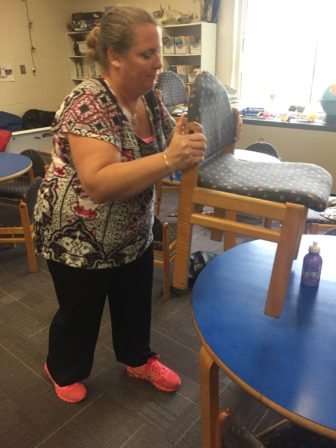
It was passed 4 p.m. and all of the students left to go home, but Golin stayed to clean her classroom and finish her report cards.
